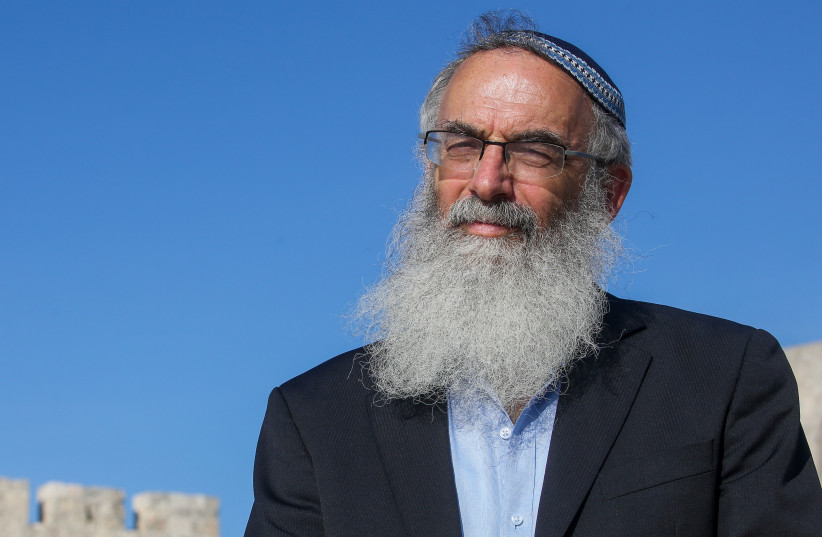Throughout Jewish history, our people have been divided. Dating back to biblical times, we have been classified by tribes that on occasion have caused tensions big enough to cost lives and threatened to break out into civil wars.
It is not new to have friction within Jewish society, and I would hazard to guess that it is something that will always exist to some degree.
But we also had hoped that the miraculous rebirth of a Jewish nation in our own homeland would serve as a remedy to that level of division. While the modern Jewish state represents an ingathering of people with highly diverse backgrounds, the creation of the state was inspired by a vision united in the Zionist cause and the hope that this common vision would serve to limit internal strife.
I am pained to acknowledge that nearly 75 years after our miraculous independence was declared, we are forced to admit in the quest of achieving a united Jewish society that so much remains to be achieved.
A major factor behind the divisions within Jewish society relates to how the different “tribes” of today relate to Jewish tradition and practice. I firmly believe, and know from my daily work in this field, that Israelis have a thirst for their Judaism. But all too many Israelis, particularly those in the younger generation, have grown alienated from Jewish practice because of how certain segments within the greater Jewish society relate to it.
It is not too late to address these challenges, but in order to effectively do so, we need to establish several key conditions.
The first condition is that Judaism must be understood as something that every Jew has to want to embrace. Our commitment to practice has to be a reflection of the concept of free choice. That we have the right to choose our destiny as Jews is a central tenet of our belief, yet sadly it is all too absent in Jewish society. But when tradition and observance are forced upon us, the inevitable reaction is that people will respond negatively.

Particularly in the modern Jewish world, and all the more so among the younger generations, there is a growing sense of coercion surrounding religion. There is a feeling that people cannot choose whether to embrace religion, and as a result, rather than find the beauty in Jewish tradition, they find it easier to turn away.
Just as I am writing these words, I am afforded a painful example. A fellow Tzohar rabbi called to inform me that following the announcement that he would be coming to a local kindergarten to blow shofar in advance of Rosh Hashanah, one of the parents called the teacher to say they didn’t want that their child exposed to that. As a result, dozens of children would be deprived of the chance to become connected to this central symbol of our tradition – and I am wholly confident it is because of that “fear” of coercion that has become so commonplace in our society.
Removing coercion from religion is not a simple step, but on a basic level, it will require those religious authorities, particularly here in Israel, to adopt a far more modest and compassionate approach. This need not mean ever abandoning halacha, because halacha must always be the standard-bearer for how we act as Jews, but it means being open to the sensitivities and emotions of people who think and act differently.
The second condition is that religion has to be provided in an accessible manner. We live in a consumer-oriented society where speed and modes of quick delivery are essential to customer satisfaction. While religion is not a product that should be related to as a basic commodity, as religious leaders we still need to find a way to ensure that it is being delivered in a more accessible way. This means embracing technological tools and social media to spread the messages of the beauty of our heritage in ways that this younger generation will understand and absorb. This is an understanding that dates back to the book of Mishlei, where it was written “chanoch l’naar al pi darko,” that we must teach our youth based on his or her capabilities. Once again, this never means reducing the sanctity of the words that we are learning, but demands of us to find the ways to teach so it can be embraced and loved by the students.
The final and perhaps most important condition is that we remind our students and children that Torah is not intended to be a constricting set of laws, but is at its very essence a code of morality that can bring happiness and meaning to every aspect of our lives. For the reasons described above, this is a reality largely absent in how young people relate to their Judaism. Young men and women are unable to find the beauty in their faith and identities as Jews because they are often only hearing about the restrictions that come with Jewish practice.
There is no disputing that this path is not a simple one. Our modern world is filled with distractions, whether they be those in our personal lives or on the global level of wars, politics and pandemics. Those distractions take our hearts and minds away from the deeper concepts of meaning, morality and history that are what make us a unique and proud Jewish people.
But we are a people who have risen to many challenges in the past, and if we are to succeed in overcoming those divisions and pitfalls that threaten our downfall, we must make the decision to make these critical changes – both in outlook and practice.
Because it is no exaggeration to say that our very future as a people and nation depends on it.
The author is chairman and founder of Tzohar.
